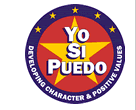Uruguay to implement Cuban Literacy Program
- Submitted by: admin
- International
- South America
- 02 / 23 / 2007

The Cuban Literacy program known as «Yo sí puedo» (Yes, I Can) will be implemented in Uruguay next month.
According to Nicaragua's Internet Webpages http://www.lavozdelsandinismo.com the initiative, to begin implementation as of March 12, is aimed at teaching 10,000 Uruguayans how to read and write before the year's end.
Statistics from Uruguay's Social Development Ministry and the Central Directive Council indicate that there are some 4,000 fully illiterate persons in that South American nation, while another 37,000 citizens have not reached over the fifth grade. On third of that population will be benefited by the literacy initiative this year, said program coordinator Yamandú Ferraz.
The average age of students ranks between 25 and 50 years for males and female, said the official who said that the Cuban teaching methodology is very efficient and high-quality.
The «Yo sí puedo» Cuban Literacy Program has been successfully implemented in several Latin American and African nations. It was born as an alternative to unsuccessful efforts by other third world countries to wipe out illiteracy.
The Cuban program is based on an audiovisual method composed of 65 TV-lessons lasting 30 minutes each and it allows students to learn how to read and write in just three months. The program has been translated into French, English and Portuguese as well as into other local aboriginal languages, such as Quechua, Aymara and Gurani.
The largest percentages of people benefited by the program in some 15 countries are located in Venezuela, Mexico, Mozambique, Ecuador and New Zealand, as well as Argentina, Nicaragua, Bolivia, Angola, Ethiopia, Cape Verde, Colombia, Belize, Haiti and Brazil.
According to Nicaragua's Internet Webpages http://www.lavozdelsandinismo.com the initiative, to begin implementation as of March 12, is aimed at teaching 10,000 Uruguayans how to read and write before the year's end.
Statistics from Uruguay's Social Development Ministry and the Central Directive Council indicate that there are some 4,000 fully illiterate persons in that South American nation, while another 37,000 citizens have not reached over the fifth grade. On third of that population will be benefited by the literacy initiative this year, said program coordinator Yamandú Ferraz.
The average age of students ranks between 25 and 50 years for males and female, said the official who said that the Cuban teaching methodology is very efficient and high-quality.
The «Yo sí puedo» Cuban Literacy Program has been successfully implemented in several Latin American and African nations. It was born as an alternative to unsuccessful efforts by other third world countries to wipe out illiteracy.
The Cuban program is based on an audiovisual method composed of 65 TV-lessons lasting 30 minutes each and it allows students to learn how to read and write in just three months. The program has been translated into French, English and Portuguese as well as into other local aboriginal languages, such as Quechua, Aymara and Gurani.
The largest percentages of people benefited by the program in some 15 countries are located in Venezuela, Mexico, Mozambique, Ecuador and New Zealand, as well as Argentina, Nicaragua, Bolivia, Angola, Ethiopia, Cape Verde, Colombia, Belize, Haiti and Brazil.
Comments